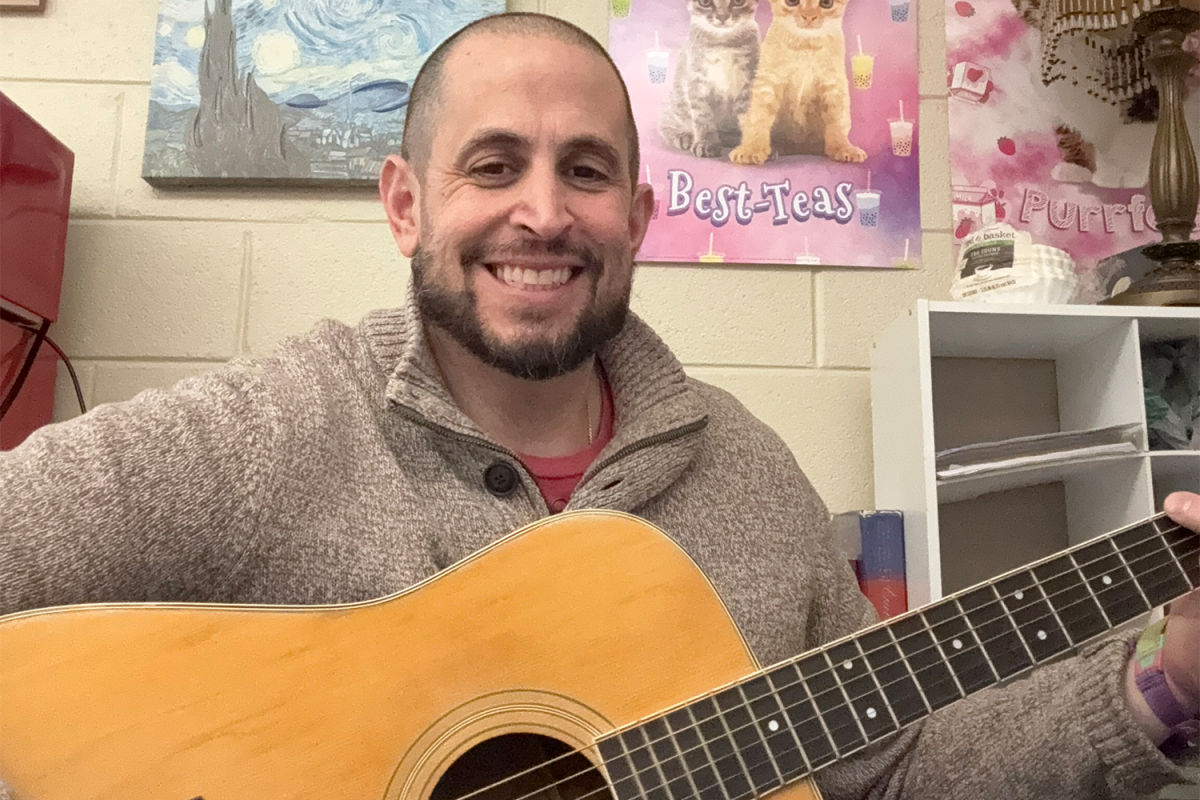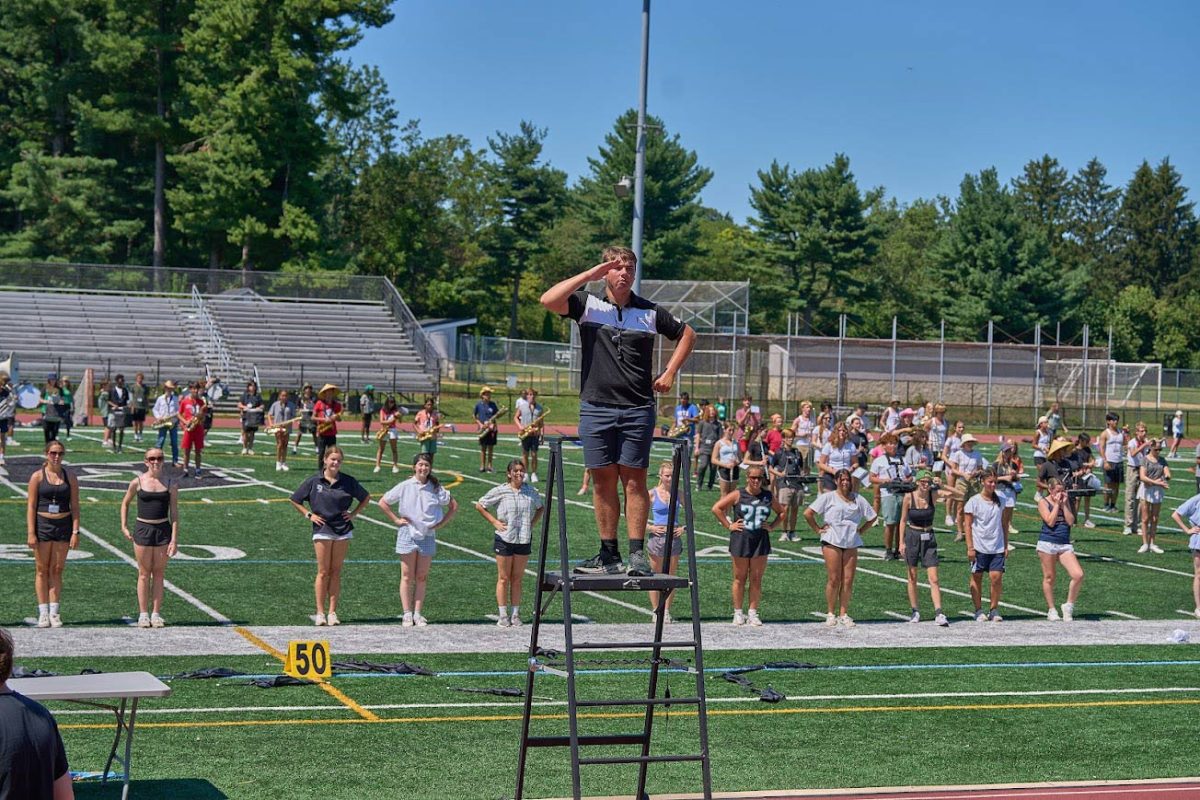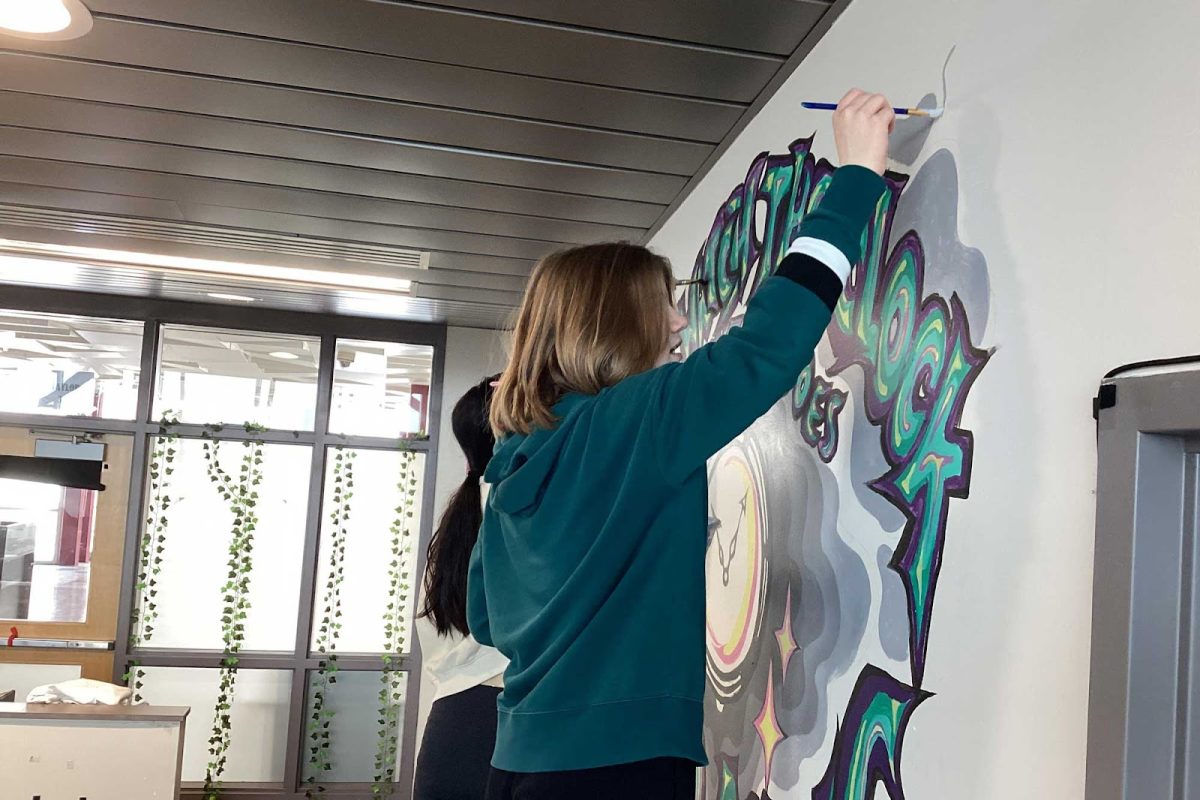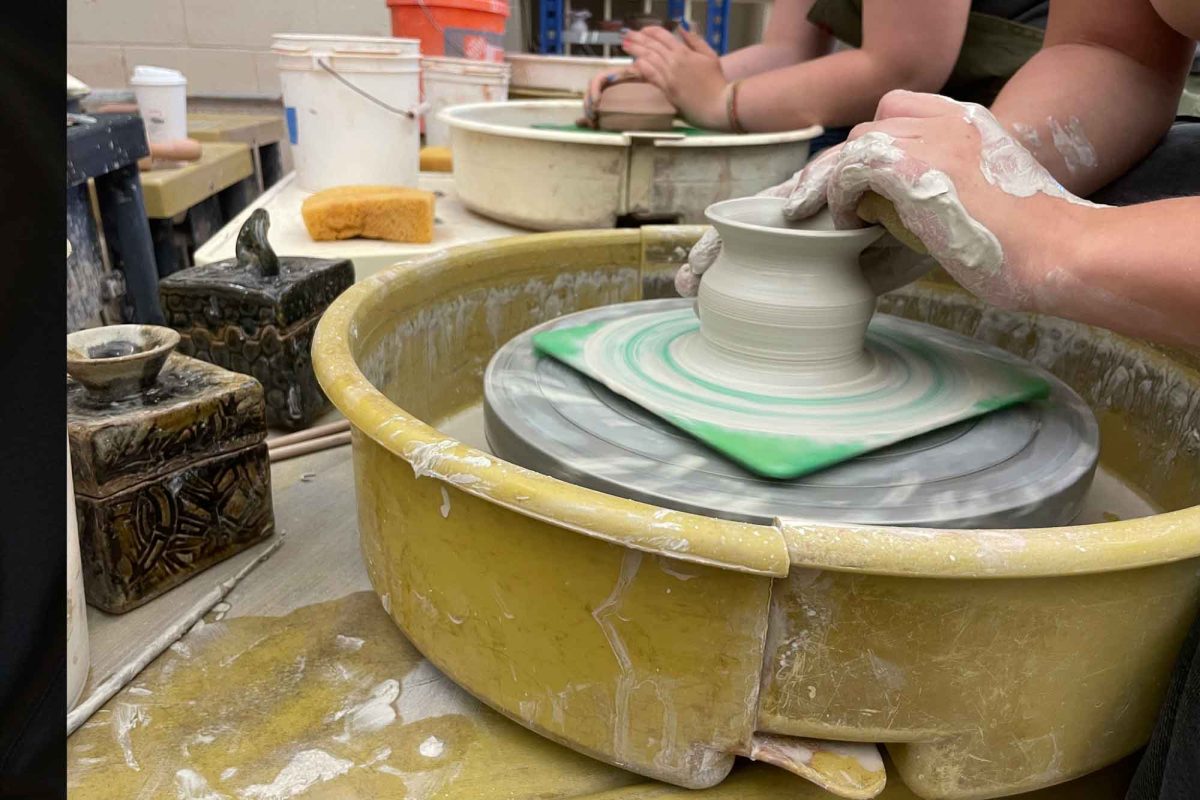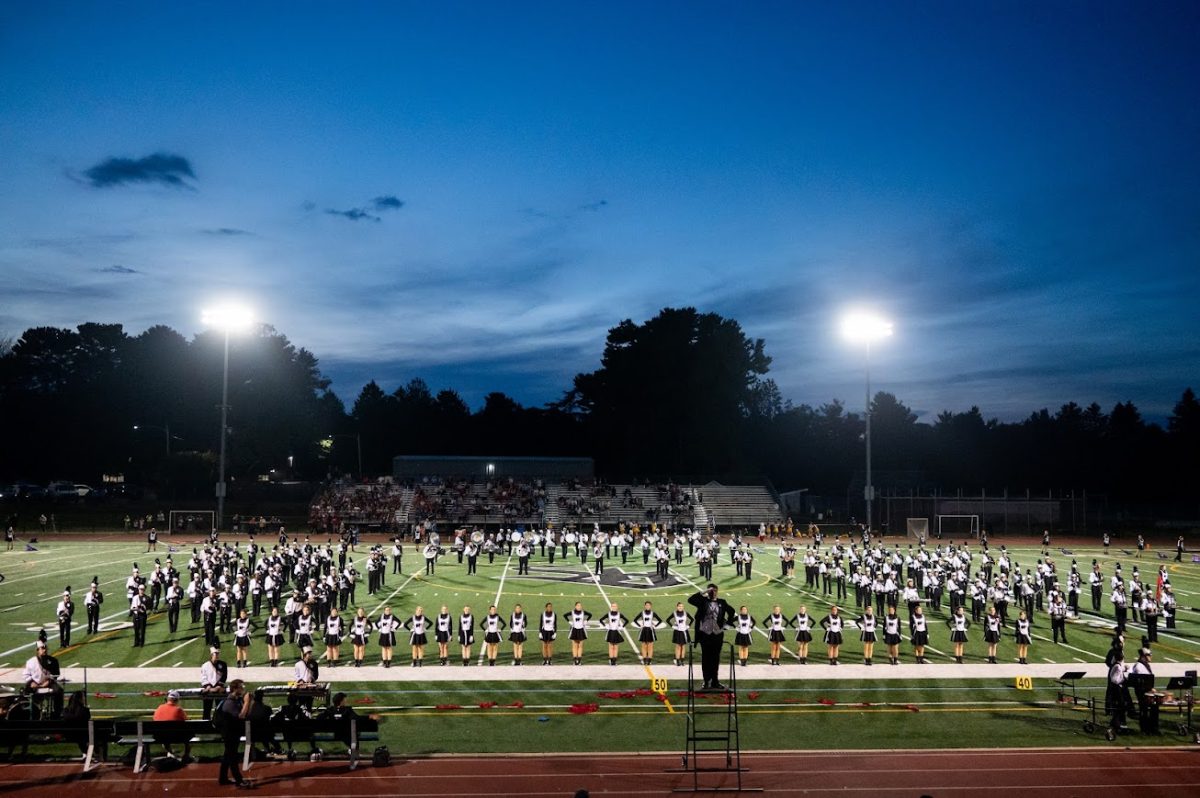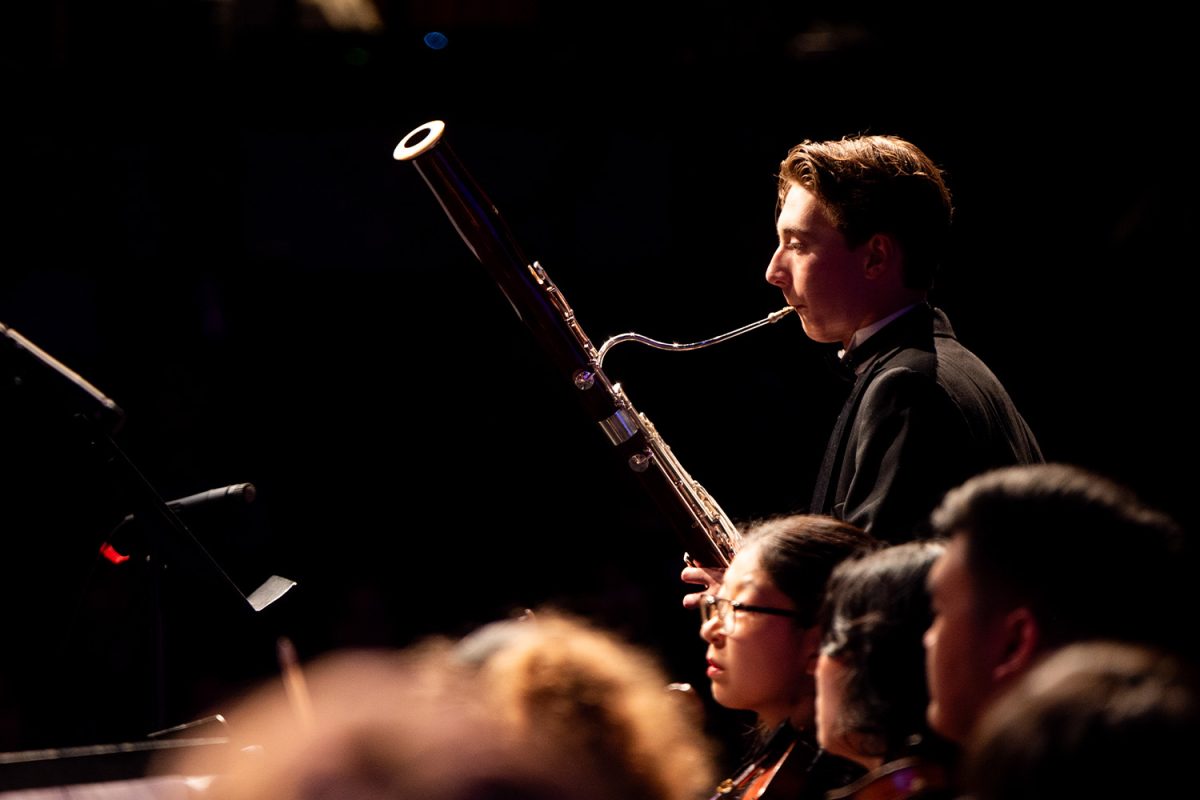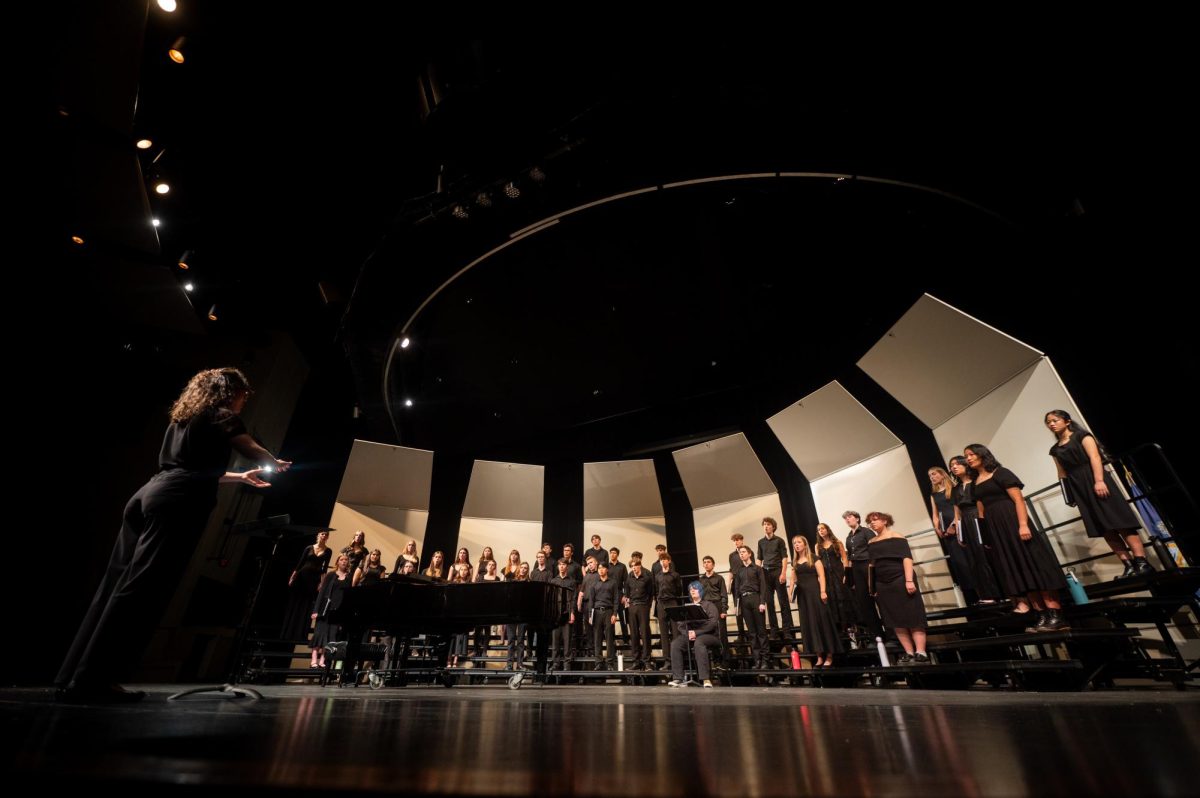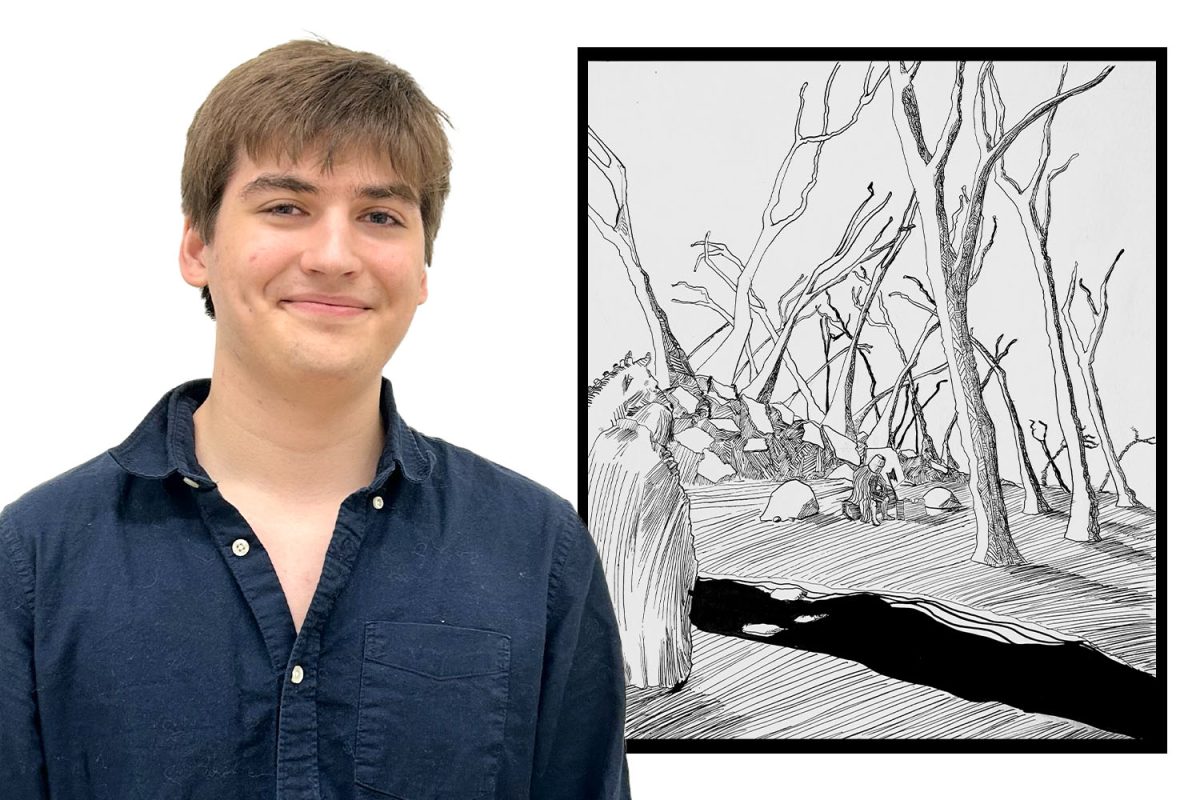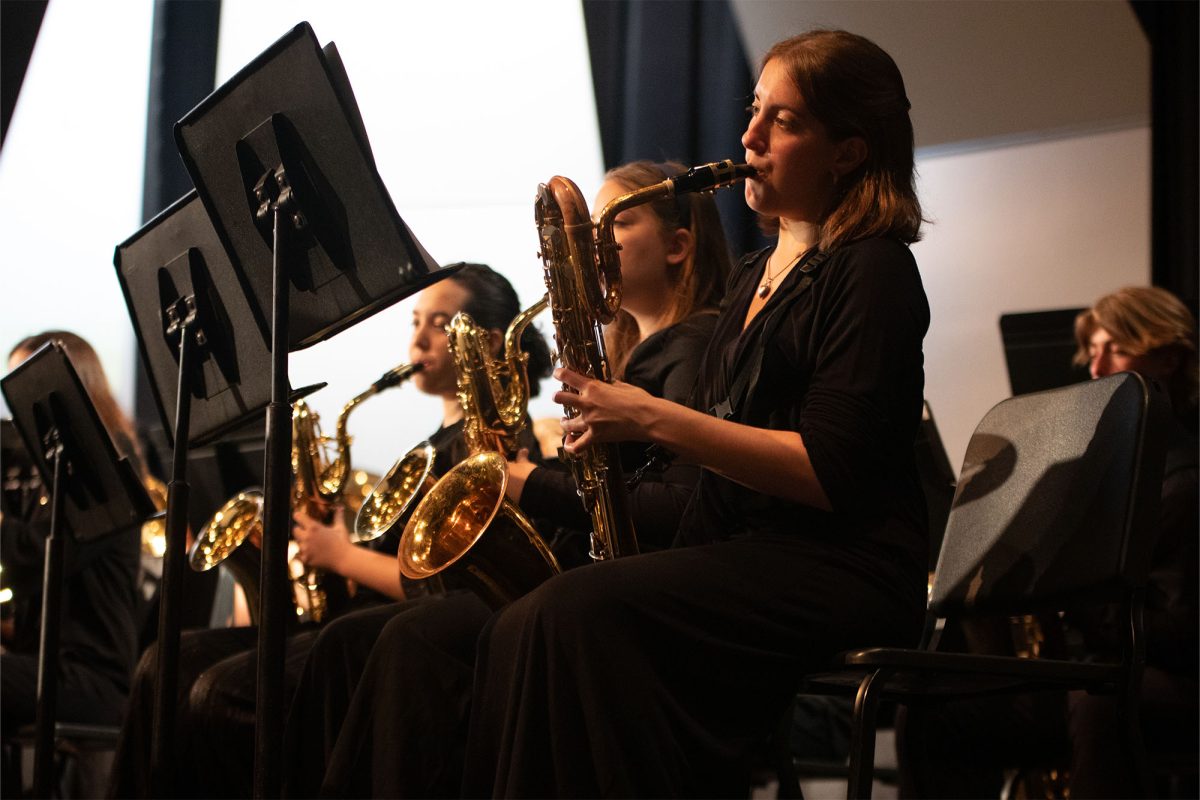Mr. Tom Babcock, in addition to teaching, enjoys making music and expressing himself creatively.
Babcock is not just a social studies teacher—he’s a storyteller, a musician, and an inspiring presence in the classroom and beyond, with his musical beginnings rooted early in life.
“My house growing up was very musical. Everyone played something,” Babcock said. “I’ve played guitar since I was in fifth grade.”
Although from a young age, there was no question about whether or not he was interested in music, Babcock has continuously dabbled in different areas, with the lockdown of 2020 allowing him to hone in on newfound talents.
“[I started] playing banjo and mandolin, but not as good as guitar. I could play piano a little bit, too,” Babcock said.
Babcock’s life partner shares his affinity for music, bringing the two closer together.
“My wife, who I’ve been married to for the last 30 years, also comes from a very musical family,” Babcock said.
The two continue on the legacy of creative exploration by encouraging the same activity in their own children.
“When we were starting our own family, this one thing that we both have in common with each other certainly got pushed,” Babcock said. “All my kids sing and play something just because it’s what my dad did.”
Babcock believes that music can be a helpful tool in learning to foster connections, personal development, and lifelong learning.
“I love it, because it’s a constant challenge,” Babcock said. “I love the challenge of, can I play that? Even if I can’t, can I learn to play it slowly?”
Babcock argues that in learning an instrument, it’s important not to be overly critical of yourself while still taking responsibility.
“Could you play a song yesterday? Oh, you couldn’t. All right. Can you play it a little bit better today? You can, all right, and you can take that and you go with it,” Babcock said. “We constantly compare ourselves to someone else, but you really have no idea what that person put into it.”
Babcock’s emphasis on the message of prioritizing what you love is clear.
“You have to just practice and take your mind off of whatever else is going on, at least for the length of time you’re playing,” Babcock said.
Babcock believes that working hard to achieve a goal is an incredibly meaningful experience, with every small victory symbolizing improvement.
“The only thing that you can actually compare yourself to is you yesterday. That’s it. Everything else is complete dysmorphia,” Babcock said.
When asked about whether or not he thought that music translates over to positive performance in school, Babcock countered with a different point of view, arguing that it is important to enjoy aspects of living outside of school.
“Why would you want it to translate to school work? I mean, it’s good for life,” Babcock said.



